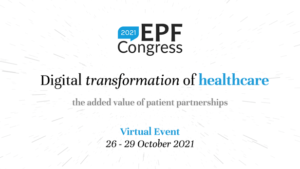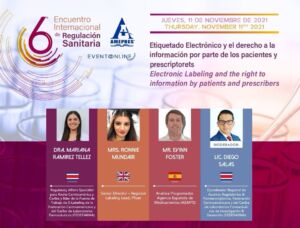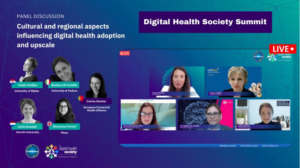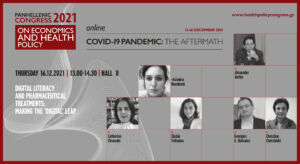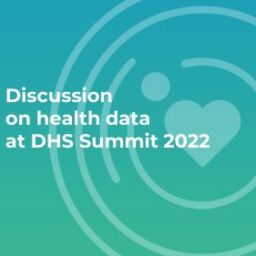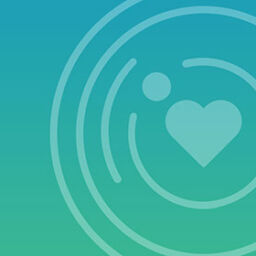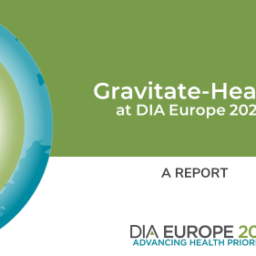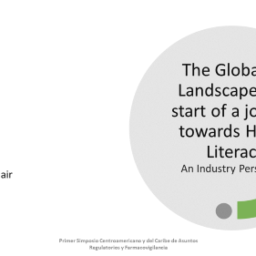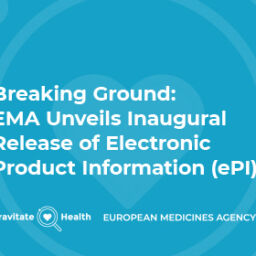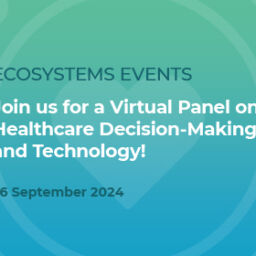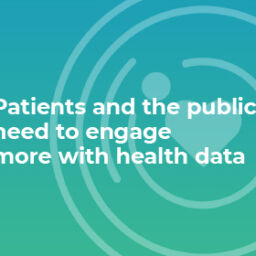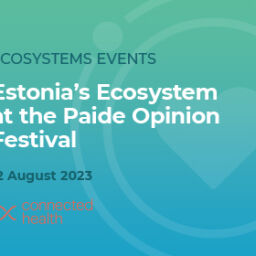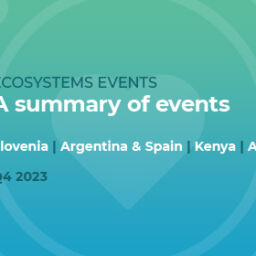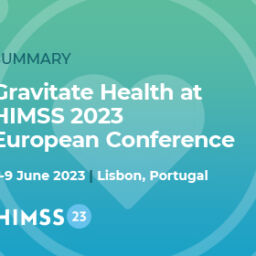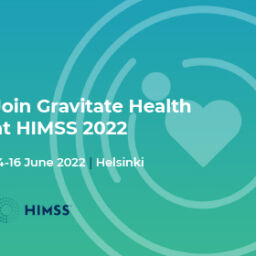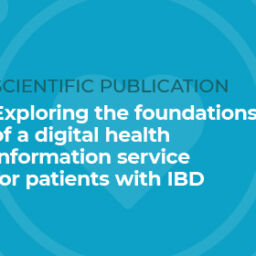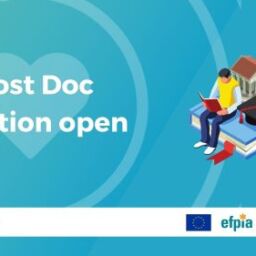The project’s presence in events – fourth quarter 2021
EPF Congress 2021
From 26 to 29 October 2021, the European Patients’ Forum held its Congress, which focused on the digital transformation of healthcare. As a key project partner at the centre of the healthcare transformation, Gravitate Health was featured in its own booth as well as in a video session of the main congress programme.
Like a physical stand, the Gravitate Health booth allowed chats and interactions with visitors, and made it possible to share key documents. The booth will remain live online until the follow-up in-person Congress event, TBC for 2022.
EPF Congress 2021 featured more than 450 participants from 42 countries, and over 50 speakers with 16 interactive sessions and booths. The virtual event showcased the added value of patient partnerships in digital health and care.
Barcelona Health Hub Summit
Eva Turk, Senior Researcher at Gravitate Health and at the University of Oslo participated as a speaker in the panel “The Patient Journey: Putting the Person in the Driver’s Seat” at BHHSummit on October 28th, 2021.
Healthcare has been shifting from curing sick people to keeping them healthy as long as possible, by focusing on prevention and value-based care. People are also better equipped with technology tools making wellness and care accessible when and where they want to and personalized to them.
The panel discussed the empowerment of the citizen-patients and the impact of this shift in mentality as well as the use of technology on the lives of both the citizens focused on their wellbeing and keeping healthy and the patients suffering from a chronic condition requiring regular medical attention.
Eva’s speech focused on moving from “sick” care to “health” care; digital health literacy as a prerequisite to accelerate the use of digital solutions, and the need to put patients in the driver’s seat when there are active contributors in development of the solutions.
6th International Meeting on Regulatory Affairs, AMEPRES
Ronnie Mundair (WP2 Co-Lead) and Evinn Foster (AEMPS and a member of the consortium) were delighted to be asked to present on the topic of ‘e-labeling and the right to information by patients and prescribers’ and specifically share details of our EU IMI Gravitate Health project at the 6th International Meeting on Regulatory Affairs, AMEPRES, an event that took place from 9 to 12 November 2021.
This was an exciting, as it was a golden opportunity to highlight the aim and vision of Gravitate Health in the presence of the Pan American Health Organization (PAHO), fourteen regulatory agencies & health authorities, and representatives of regional and global pharmaceutical industries, academia, and consultants. Attendees’ locations varied from the United States, United Kingdom, Switzerland, Brazil, Cuba, Chile, Argentina, Spain, Panama, Ecuador, Honduras, Costa Rica, El Salvador, Nicaragua and Mexico.
Digital Health Society Summit 2021
On the 24th of November 2021, The Digital Health Society (DHS) and the ECHAlliance hosted a panel session within the Digital Health Society Summit 2021, on “Cultural and regional aspects influencing digital health adoption and upscale”, involving representatives from the EU projects Gravitate Health, Valuecare, Gatekeeper and Brainteaser. Gravitate Health was represented at the highest level by Giovanna Ferrari, Ph.D, Pfizer, Regional Labeling Lead at Pfizer and Project Lead.
The session aimed to advance and discuss some of the many complex reasons that impact the sustainable adoption of innovations in digital health across the EU or even worldwide, mainly those connected to cultural, systemic, organisational and individual differences.
One key aspect discussed was the inclusion of multiple stakeholders in the design, development and implementation of digital health products and services, bringing together different regions, countries and even parts of the world beyond Europe can help to understand the relevant differences and then collaborate to provide targeted but still harmonised solutions and support. A strong focus on citizen and patient empowerment and the inclusion of their views, needs and perspectives was highly advocated and considered of utmost importance. The discussion included an extra mile to add to traditional co-design and co-creation, with the importance of analysing personal values and needs, not at the abstract level, but embedded in each person’s context, relationships, and daily life.
Take-home messages are communicating more, communicating better, and including all relevant actors in the process are key aspects to advance on the upscale of digital health.
Panhellenic Congress on Health Economics and Policy 2021
There is currently an opportunity offered by EU policy for the member states to take the next step in digital health. To capitalize on this offer, joint efforts, efficient communication of the digital health agenda, and health professionals’ training to the proper use of digital tools are required. This was one of the conclusions drawn from a very constructive discussion within the session “Digital literacy and pharmaceutical treatments: Making the ‘digital’ leap” held on December 16th, at the Panhellenic Congress on Economics and Health Policy (13-16 December 2021). The discussion was coordinated by Dr Alexander Berler, IHE Service Director, IHE Europe, HL7 Hellas Vice Chair.
Catherine Chronaki (WP5 co-lead and interoperabilty lead), secretary general at the HL7 Europe Foundation and EFMI President, gave the introductory speech, entitled “Electronic Product Information (ePI) for informed European citizens”, and presented Gravitate Health project.
Gravitate Health has been conceived to give patients a “voice”, improve their access to and understanding of health information, aiming to safe use of medicines, minimization of hazards and improvement of the patients’ quality of life, Mrs Chronaki said. Better use of the existing health information leads to patients’ better understanding, facilitates their adherence to treatment, contributes to better risk management and health education. G-lens—the digital tool which will be Gravitate Health’s product—will help each patient to draw targeted and personalised information that correspond to to one’s own particular needs, health condition, literacy level, living conditions, habits, and challenges.
Digital Health experts and representatives from the Hellenic Ministry of Health (Mina Boumbaki), Greek e-Government Centre for Social Security – IDIKA (Elpida Fotiadou), local government (Georgios Dafoulas, KEDE), and biomedical industry (Christina Chatzidaki, Alcon).
The panel concluded that the the underlying conditions are favourable, and all stakeholders show a drive that can be exploited to help Greece make a ‘digital leap’ in health.
The project was also represented in:
EHiN (E-Health in Norway) Conference on Digital Health (Norway) by Anne Moen
DIA Meetings: DIA Pharmacovigilance Strategies Workshop; DIA Japan; and DIA Japan Electronic Patient Information (ePI) Forum



